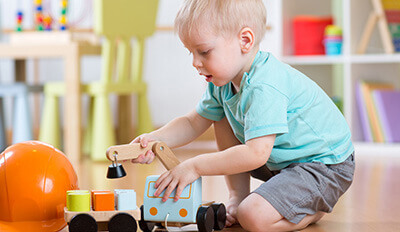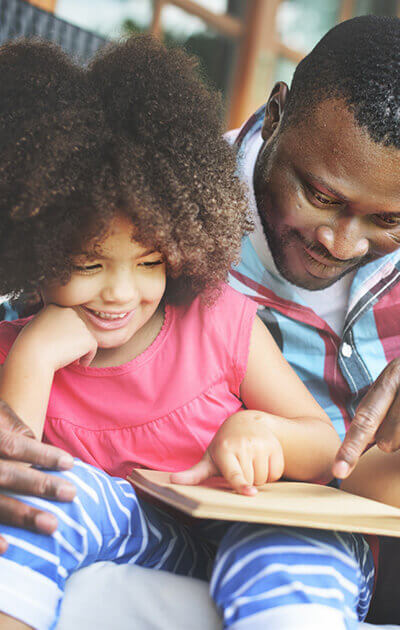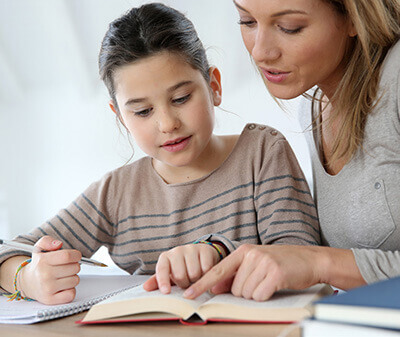Contact Goodwins
Complete this form and one of our expert team will be in touch to discuss how we can help
Any details or information provided will at all times remain strictly confidential.
Guide For Parents: Helping Children Cope with Divorce
Posted on: 24 October 2017 by Goodwins Family Law Solicitors
When going through a divorce, you are more than likely going to be faced with a number of tasks, and it can be very easy to become stressed and overwhelmed with the process. However, for children of divorcing parents, the stresses and emotions involved with a divorce can be multiplied exponentially, no matter what age they are or how much they prepared for it. They will need guidance and help to get through the divorce and adjust to the changes in their lives, and we’ve created a guide for parents to help their children in these situations.
You can also download the guide if you wish to print it.

Before you speak to your child
Your divorce may be perfectly amicable, or it may be fractious and contentious – if possible you should address your children as a couple, to help ease their fears and put on a united front. If you have multiple children, gather them together and speak to them at once – it may be easier for them if they are with their siblings, rather than being spoken to one at a time.
Be sure to plan what you’re going to say – this way you can be clear with your children and try and cover all the matters you think they might be worried about.
Taking turns to cover important points is a good way to show that you are not just making it up on the spot, and it also helps convey the feel of togetherness between you and your ex, or soon-to-be ex spouse.
This includes keeping unnecessary information from the children – they don’t need to hear about arguments or problems that you and your spouse have been having – they need to be kept calm and reassured.
Make sure you emphasise that is is not their fault and nothing has changed in terms of how much you love them and care for them.
This is not going to be an easy conversation and there is almost certainly going to be mixed reactions from your children. If you have adult children, you may find they deal with it ‘well’ – that is to say they may be slightly more reserved than younger kids.
Young children are likely to be very upset and very scared, so prepare yourself for varying responses when you do break the news. They will also probably have questions, so be ready to answer those as best you can to allay their worries and make sure they know as much as possible about the situation.
Age Differences – How to talk to different age groups
Infants and toddlers
Infants and toddlers are unlikely to fully comprehend the situation, but nevertheless it is important that you try to keep them calm. They might get worried or upset if they see that you are emotional, so try your best to put on a brave face and united front for them, even if you don’t have to explicitly explain what’s going on to them.

6-10 year olds
At this age, they are likely to have some understanding of what divorce is and what it means. However, they will still be very scared and may have some misgivings about what it means for them and their future. Reassurance is absolutely paramount – they’ll need to know they’ll be fine and that you an d your spouse still love them. They are likely to worry about issues like where they will live, if they will still be able to see their friends, etc. They may also get angry, and it’s not uncommon for them to ‘side’ with one parent over another – it’s important to let them process it in the way they choose. As they are more advanced emotionally and mentally than younger children, they may experience stronger emotions than younger kids. This can range from stronger sadness, to anger, to feelings of rejection and guilt.
It is vital you take the time to listen to their opinions, and in the case of guilt and rejection, let them know that they have absolutely nothing to feel guilty about, and they have no cause to feel rejected.

Early teens
Preteens and early teens are famously ‘moody’, and while this may be something of a stereotype, it can be true that they are developmentally more cynical than other age groups. With this in mind, expect them to be somewhat cynical or more explicitly sad/angry about the situation. Even though they may be more focused on friendships and their burgeoning social lives, they will still likely feel very anxious about the future, but this can be compounded by an unwillingness to open up about their feelings and worries.
As they are more advanced emotionally, you may experience them openly blaming a parent for the divorce – this needs to be corrected. They may want to know what exactly has caused the divorce, but it is important that you keep those matters separate and allow them to process the situation without any unnecessary information clouding their judgement
Allow them to see things from their perspective, but manage it where necessary – try and encourage them to talk about their feelings with you or the other parent – you and your expartner should be open with each other about the way your children are feeling.

Older teens
For older teenagers, going out with friends and establishing their independence is likely to be their key focus in life, and they may feel like a parental divorce is a risk to that, which can cause them to act out. They may start to engage in bad behaviour, or start exhibiting protest behaviour like staying out late or staying with friends more than they stay at home. Their feelings about the situation will be intense, but they may have trouble expressing them, as they may feel like they need to be ‘strong’ during the situation, whether that be for their parents or for younger siblings.
With children that are moving towards adulthood, it can be tempting to divulge information about the divorce that younger children may not be privy to. However, this practice should be avoided – problems between parents are exactly that, and it can be a burden for the child to receive details about the situation that they do not need to know.

Potential questions
No matter the age of your children, you are going to face some questions from them when you get a divorce. It’s a confusing and scary time, and they will look to you for reassurance and guidance. Some questions you may face include:
- Where will I live?
- Why is this happening?
- Have I done something wrong?
- Do you and mum/dad still love me?
- What about my friends?
The answers to these questions need to be considered and delivered sensitively. Of course, it goes without saying that you must stress that the child/children haven’t done anything wrong and you both still love them – that will be one of their primary concerns and reassuring them that these circumstances will stay the same will help them a great deal.
Things to avoid
Oversharing
No matter what the relationship with your child or children is like, you should avoid sharing too much information about your separation with them. They don’t need to hear about arguments or any sensitive details about the divorce – they could be struggling to deal with it as it is.
Making your children pick sides
You shouldn’t try to turn your children against the other parent. You and your ex-partner may have fallen out, but it has nothing to do with your children and they should be able to enjoy the time they spend with both parents without being made to feel guilty about it.
Ask them for information
It is wrong to ask your children to pass on information about the other parent, whether in regards to a new partner, their general happiness or anything they may have said about the divorce.
Punish the other parent
Regardless of whether the divorce was initiated by you or not, no matter how tempting it may be, you should not try to punish the other parent where your children are involved. For example, cancelling or delaying visits – this may upset your children.
Try and buy their affections
Bribing your children, no matter their age, should be avoided. Again, no matter what the situation is between you and your ex partner, you shouldn’t try to win your child’s affections or buy them gifts intentionally to persuade them to take sides.
Providing stability
All children of divorcing parents will need stability in the weeks, months and even years following the divorce. However, the way that stability should be provided is different depending on the age of the children.
Infants and toddlers
They will need regular contact with both parents, and any schedules that were in place before the separation should be maintained as best as they can in order to retain the sense of familiarity for the children. Shield them from any parental tension, and make sure that any changes to environment or routine are introduced as gradually as possible to ease them into any new patterns in their life.
For slightly older children, like toddlers, they are likely to recognise the situation a little more and may show signs of bad behaviour. If this is the case, discipline them accordingly but do take into account that this is a very unsettling time for them. Physical affection and direct interaction are vital for all young children in this situation, so make sure to exhibit this and remind them they are still loved as often as possible.
Three to five year olds
Children of these ages will be starting to form their own personalities and ideas about themselves, but they will still need similar reassurance as toddlers and infants. They will be slightly more adept at tolerating time away from mum or dad, but consistent contact from both parents is a must, as is reassurance that they are not to blame and their parents still love them.
Routines should be kept unchanged where possible, and in the event of bad behaviour, limits should be set. However, let them know that they can express how they feel in more appropriate way and they shouldn’t keep their feelings bottled up.
6 to 10 year olds
As they are more emotionally and developmentally advanced, children of this age will need ample opportunity to talk about how they’re feeling about the situation. They need to know their feelings are taken seriously by both parents, but they also need to be told that divorce is a problem between parents and they cannot change it. Longer time with each parent is tolerated, but regular contact is required.

Early teens
As they are approaching adulthood, and will be focusing more on their own identities and interests like social lives and friendship groups, they will need to be treated accordingly. This means consulting them about decisions that will affect their lives, providing more flexibility with parental arrangements where possible and offering them more chances to test their independence. However, you should avoid bringing them into disputes between you and your ex-partner, as well as avoiding confiding in them about adult issues.

13 to 18 year olds
Children of these ages are likely to have strong opinions about the situation, and it’s important that you allow them to express themselves when they need to. They may start to act out as a response to the divorce, so make sure they are still disciplined when necessary. They should be consulted on decisions that will affect them, and they may need help and support with their feelings, as there is likely to be some conflicting emotions at play.
You can be a bit more frank with children of these ages, but again, avoid oversharing or burdening them with issues between you and your ex-partner. Be flexible with parenting arrangements, and ensure both parents are regularly in their lives through phone calls, texts and spending time together.

Managing the relationship with your ex-partner
Whether your divorce was swift and amicable or protracted and somewhat fractious, it is your duty as parents to provide a stable and loving environment for your children even after separation.
Any issues you have should be addressed directly where possible – this means they don’t bubble under the surface, which could potentially damage the time spent with children or the way parenting arrangements are made.
Arguments can be inevitable, and if they are common, avoid having these discussions in front of the children or where they can be heard. Ensure you address each other respectfully and avoid resorting to personal attacks.
This is healthy for yourselves and your children as it maintains a calm atmosphere and prevents you from making snap decisions in the heat of the moment that could adversely affect your children. If you feel you want to discuss something with the other parent, let them know in advance that you have an issue you want to bring up, rather than springing it on them.
During handover of contact, whether that be every weekend or twice a month, avoid using this time to discuss parental issues. This is neither the time nor the place, and your children will need to see you being respectful and positive to one another – doing the opposite can exacerbate their fears and provide them with fresh worries and anxieties.

What to do in situations of domestic violence and abuse
In situations where domestic violence or abuse is present, then it can be commonplace for the victim to try and minimise the severity of the abuse to protect the children. This practice should be avoided: it is likely that the children are aware of the abuse, and the best way to ensure the safety of the children and yourself is to tell your solicitor about the situation.
Your solicitor will be able to assist with the next steps, which could include an application for an injunction, which will prevent this kind of behaviour from happening in future, or prevent the abusive partner from entering your home.
For children of relationships involving an abusive partner, it can be very difficult for them to figure out how they ‘should’ feel. They may immediately side with the parent who is the victim of abuse, or they may worry about betraying one or both parents, and as such they may not express their feelings explicitly. Emotional support is therefore vital in order for them to cope with the situation in a healthy way.
Your solicitor can advise you on ways to ensure your children are not exposed to the risks associated with an abusive relationship – Legal Aid can be available for injunction proceedings for people whose income is below a certain threshold.

Divorce can be a painful process for all involved, but for the innocent children in the situation, it can be terrifying and very upsetting. There is no black and white method for making the divorce situation easy for them, but by following the advice in this guide, you can certainly help them cope with the process as best as possible.
Goodwins Family Law Solicitors are experts in all aspects of family law, including domestic and international divorce and child custody cases. For more information, please get in touch with us today and we’ll be more than happy to help.
About Goodwins
Find Out More About Our Services
Related posts
- How to Change Your Name After a Divorce
- How Does a Second Marriage Impact Financial Settlements?
- Guide to Leave to Remove Applications
- Is Divorce Always 50/50 in the UK?
- What is a Clean Break Order?
Read further advice and guidance in our online Advice Centre.